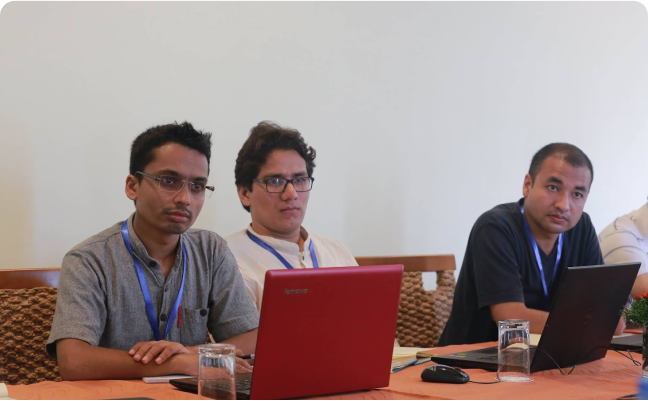
Strengthening Global-Local Partnership in International Development: A Collaborative Project in Kamalamai Municipality Ward-9, Sindhuli
This is the collaborative effort between Kamalamai Municipality Ward-9 in Sindhuli, Nepal, the International Development Hub (ID Hub) at University College London (UCL) , StoryCycle and Nepal Flying Labs.
This initiative aims to foster global-local partnerships in international development through community-led action research, emphasizing collaboration between local communities and academic institutions.
The primary aim of this project is to understand the significance of global-local partnerships in international development through community-led action research in a Municipality.

Building capacity of 8 MSME entrepreneurs to position your story online for better engagement and storytelling for different audiences…

Organized series of workshops in collaboration with the British Embassy in Nepal working with journalist to strengthening their digital skills.

StoryCycle in collaboration with Nepal Infopark organized StoryCamp HVAP for High Value Agriculture Project in Mid hills and Mountain Areas (HVAP) in Surkhet from July 13-18, 2015. The five-day camp was attended by HVAP project staff along with some local journalists.
The participants actively engaged in the uniquely designed output-focused story workshop from developing an initial idea from to production and post-production. HVAP is a joint endeavor of the Government of Nepal (GoN) and the International Fund for Agricultural Development (IFAD). It is executed by the Ministry of Agricultural Development (MoAD) in partnership with the Netherlands Development Organization (SNV) and the Agro-Enterprise Center (AEC) of the Federation of Nepalese Chamber of Commerce and Industries (FNCCI). The six-and-half-year project has been implemented in 7 districts of mid and far-west Nepal since July 2010.




